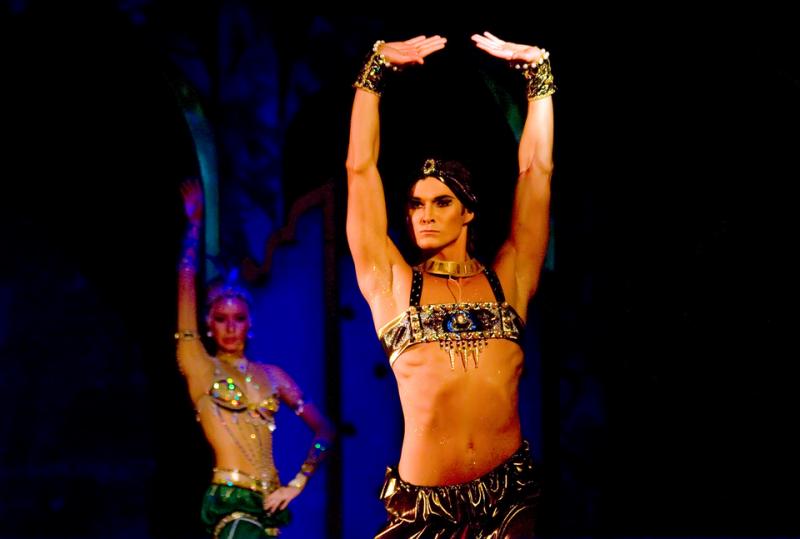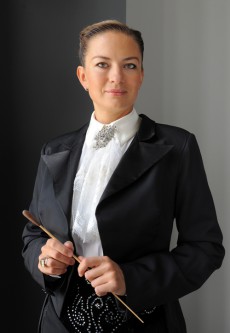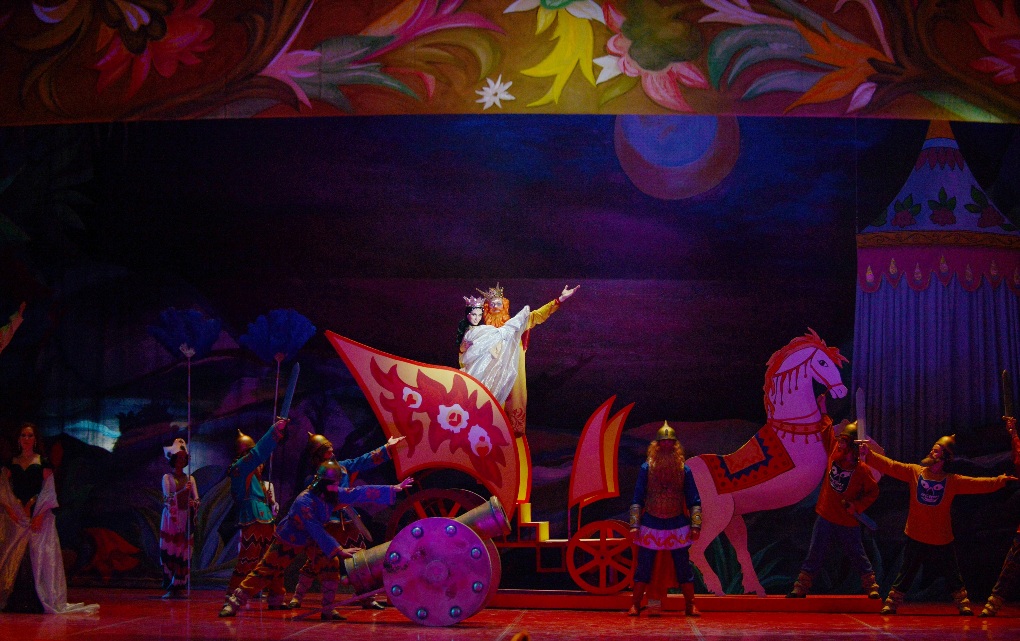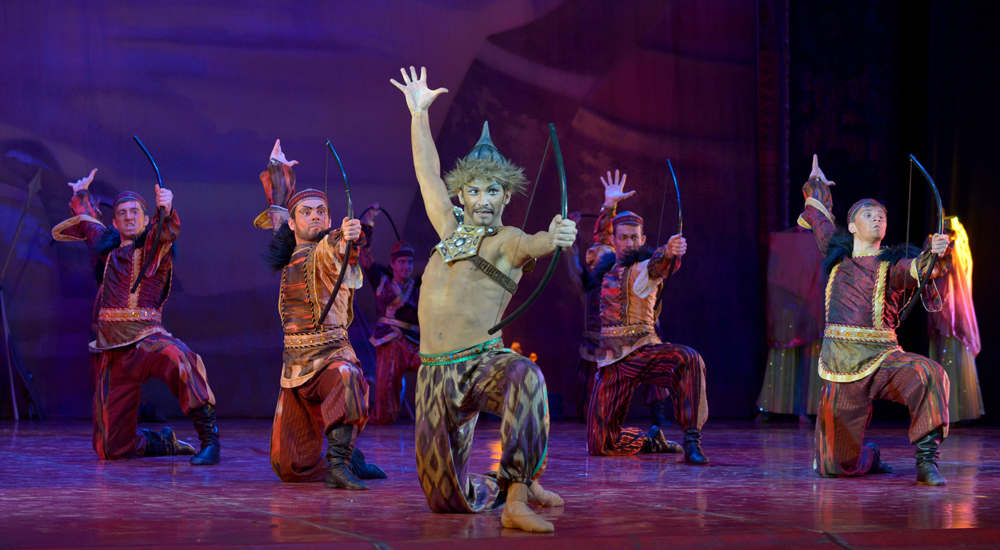Diaghilev Festival Gala, London Coliseum | reviews, news & interviews
Diaghilev Festival Gala, London Coliseum
Diaghilev Festival Gala, London Coliseum
First-rate work, high energy and musical glories from a little-known Moscow company

Bakst’s harem drapes and Roerich’s smoking, steaming Polovtsian camp may not have had the most lavish of recreations. But the rest of this homage to Diaghilev shone with an exuberance and even a precision one would not have thought possible from previous seasons of what had once seemed like Andris Liepa’s Ballets Russes vanity project.
The choreographic execution was never about technique, though there's still cause to wonder at the extensions and other sinuosities of the ever-compelling Makhalina, who gave a gala bonus with a “Dying Swan” not far off that of her junior Ulyana Lopatkina’s for poetry and pointe. As one balletomane I met declared, “Scheherazade is tosh, but they make it look like Shakespeare”. Which is to say that the harem naughtiness, so very 1910, was even a bit sexy for once: you could believe that handsome Artem Yachmennikov’s Golden Slave had a devoted crush on Makhalina’s utterly commanding dominatrix Zobeide.
 Fokine’s reading of the Rimsky-Korsakov score is mostly perverse, though he knew better than to set the opening “Sea and Sinbad’s Ship” to dance: only Ioffe’s interpretation, as compelling as any I’ve ever heard in the concert hall and glowingly executed by her fabulous orchestra, could have held the attention so while the lurid drop-curtain remained down.
Fokine’s reading of the Rimsky-Korsakov score is mostly perverse, though he knew better than to set the opening “Sea and Sinbad’s Ship” to dance: only Ioffe’s interpretation, as compelling as any I’ve ever heard in the concert hall and glowingly executed by her fabulous orchestra, could have held the attention so while the lurid drop-curtain remained down.
It’s in the big company dances, though, that Fokine excels, and the Sats corps executed them way beyond anything I’d thought possible in the fussy new choreography for The Golden Cockerel on Wednesday. Yes, they really did have the numbers and the costumes to carry off the final “orgy” – a perfect realization of Korsakov’s many strands which gave the cue to Stravinsky for what Fokine could do in The Firebird’s Infernal Dance. Fokine’s Polovtsian scenes and dances for Prince Igor have become definitive, and what fun it was to see the diminutive Maxim Pavlov give his all and flash his teeth as furry-hatted chief tribesman. The Sats Theatre’s full-bodied chorus were in the side boxes for their Polovtsian vocalizations, a little loud for the hard-working orchestra at times, but again the real thing. If the so-called “choreography” for Novaya Opera's dismally staged Prince Igor earlier this year was the worst I’ve ever seen, this was absolutely the best.
 We also got the whole of the (short) final act of The Golden Cockerel (pictured left by Elena Lapina), rather charmingly prefaced by Liepa taking us through the denouement like the true man of the theatre he is. I was happy to encounter again five of the six excellent singers I’d seen on Wednesday – the roles had been double, or treble, cast – above all to get the extraordinary mix of full and falsetto high notes from Ruslan Yudin’s tenor altino Astrologer. That he was supposed to be Diaghilev the presenter-impresario could have escaped no-one this time as Wednesday’s ultimate black wall behind the Goncharova recreations was replaced with a full photo of the great man, against which Makhalina danced her swansong, actually a 1905 Fokine creation for Pavlova in St Petersburg.
We also got the whole of the (short) final act of The Golden Cockerel (pictured left by Elena Lapina), rather charmingly prefaced by Liepa taking us through the denouement like the true man of the theatre he is. I was happy to encounter again five of the six excellent singers I’d seen on Wednesday – the roles had been double, or treble, cast – above all to get the extraordinary mix of full and falsetto high notes from Ruslan Yudin’s tenor altino Astrologer. That he was supposed to be Diaghilev the presenter-impresario could have escaped no-one this time as Wednesday’s ultimate black wall behind the Goncharova recreations was replaced with a full photo of the great man, against which Makhalina danced her swansong, actually a 1905 Fokine creation for Pavlova in St Petersburg.
 Liepa was evidently sincere in dedicating the whole evening to Diaghilev's genius (though historical revisionist turned Culture Minister Vladimir Medinsky will no doubt tell us that the great man, like Tchaikovsky, was too good to be gay). Ultimately there were two other overwhelming dominant presences: Rimsky-Korsakov, without whom even Borodin’s dances (pictured by Elena Lapina) would not glitter as they do, and Ioffe, who never put a foot wrong, dared much with her excellent players and is clearly up there with Susanna Mälkki as a conductor fit to stand with the best. If the west doesn’t poach her, may she come back with the company and – special request – can they piece together Prokofiev’s Chout with the designs of Goncharova’s almost as talented partner Mikhail Larionov for the next visit?
Liepa was evidently sincere in dedicating the whole evening to Diaghilev's genius (though historical revisionist turned Culture Minister Vladimir Medinsky will no doubt tell us that the great man, like Tchaikovsky, was too good to be gay). Ultimately there were two other overwhelming dominant presences: Rimsky-Korsakov, without whom even Borodin’s dances (pictured by Elena Lapina) would not glitter as they do, and Ioffe, who never put a foot wrong, dared much with her excellent players and is clearly up there with Susanna Mälkki as a conductor fit to stand with the best. If the west doesn’t poach her, may she come back with the company and – special request – can they piece together Prokofiev’s Chout with the designs of Goncharova’s almost as talented partner Mikhail Larionov for the next visit?
rating
Share this article
The future of Arts Journalism
You can stop theartsdesk.com closing!
We urgently need financing to survive. Our fundraising drive has thus far raised £49,000 but we need to reach £100,000 or we will be forced to close. Please contribute here: https://gofund.me/c3f6033d
And if you can forward this information to anyone who might assist, we’d be grateful.

Subscribe to theartsdesk.com
Thank you for continuing to read our work on theartsdesk.com. For unlimited access to every article in its entirety, including our archive of more than 15,000 pieces, we're asking for £5 per month or £40 per year. We feel it's a very good deal, and hope you do too.
To take a subscription now simply click here.
And if you're looking for that extra gift for a friend or family member, why not treat them to a theartsdesk.com gift subscription?

Add comment